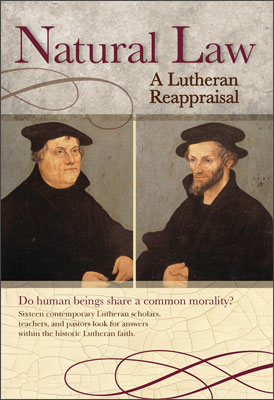- that the natural family be recognized to consist of one man and one woman united in marriage for life—and their children, whether begotten or adopted
- that husbands serve as compassionate heads over their wives and children in a manner epitomized by the self-sacrificial love of Christ for His Church, and that wives submit to their husbands in a manner epitomized by the Church’s loving submission to Christ
- that husbands lead their families in home devotions, regular church attendance, catechetical instruction, and lifelong Christian discipleship
- that husbands seek gainful employment to provide for their wives and children, empowering their wives to bear and nurture children
- that husbands and wives welcome all of God’s procreative blessings in their marriage, recognizing children as a heritage of the Lord
- that parents take active and primary roles in the Christian upbringing and general education of their children
- that families assist relatives and others:
- older men mentor younger men to provide for and protect their families
- older women mentor younger women to care for their husbands and nurture their children
- all provide for the material needs of others in times of crisis
... CHURCH ...
- that men serve in ecclesiastical vocations consistent with the principle of male headship, including both the office of the pastor and other gender-appropriate offices, such as that of a teacher, church council member, congregational committee chairman, or Sunday school superintendent
- that women serve in ecclesiastical vocations consistent with the principle of female submission, such as teaching women and children, mentoring younger women, and caring for widows and orphans (among whom may be included single mothers and their children)
- that congregations view Christian day schools, Sunday Schools, and Vacation Bible Schools as supplements to, not replacements for, the Christian training that member parents provide to their own children, and as outreaches to nonmembers
- that congregations and associations of congregations assist member families and the larger community in times of special material need
- that congregations promote a proper respect for civil government, teach Christians the divinely appointed powers and limitations of civil government, and encourage members in their civic responsibilities
- that Christians contribute their talents to the civic sphere while maintaining a proper distinction between the divine institutions of church and state
... and SOCIETY ...
- that society be recognized to originate from natural families serving one another (society does not create and cannot redefine the natural family)
- that civil governments’ proper authority be recognized as a divinely established derivative from the office of parenthood
- that civil governments promote peace and justice—protecting citizens’ rights to life, property, and liberty (especially religious liberty)
- that civil governments’ promotion of the common good serve as a supplement to, not a replacement for, similar work performed by families, and ultimately aim to strengthen the ability of families to perform such tasks on their own
- that family law, including provisions concerning marriage, procreation, adoption, and child custody, be founded upon principles of natural law
... in the Spirit of the Lutheran Confessions
- that Holy Scripture be respected as the inspired, infallible, and inerrant Word of God, and the final authority in all matters of doctrine and practice
- that the Lutheran Confessions in the Book of Concord of 1580 be accepted not insofar as but because they are a correct interpretation of Holy Scripture
- that Law and Gospel be properly distinguished to convict people of their sin and comfort them with Christ’s forgiveness
- that the Bible be taught in its truth and purity and the Sacraments be rightly administered




